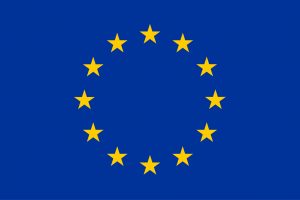The BugWright2 project
Autonomous Robotic Inspection and Maintenance on Ship Hulls
Privacy policy
Information on personal data processing
In order to allow you the access to the pages on the BUGWRIGHT2 Project website (hereinafter also “website”), we kindly ask you to read the rules we apply for management of personal data in accordance with the provisions of the European Regulation 2016/679 (“GDPR”) and in compliance with the French Data Protection Act (loi Informatique et Libertés).
The disclosure is provided only for the above-mentioned website and not for other websites that may be accessed by the user through links to other domains. Therefore, following consultation of the website, data may be processed on persons identified or identifiable, for which we provide the following information:
Definitions
Personal Data – any information relating to an identified or identifiable natural person.
Processing – any operation or set of operations which is performed on Personal Data or on sets of Personal Data.
Data Controller
Data Protection Officer
Purpose ad Legal basis of data processing
The processing of your personal data is based on the following purposes and legal bases:
Without your prior consent for the purposes of service and, in particular, to:
- perform the contract and/or pre-contractual commitments:
- create an account;
- satisfy the information request;
- use the website;
- manage a contact request from you;
- provide appropriate tecnical assistance.
- pursuit a legitimate interest of the Data controller:
- manage and maintain the website;
- prevent or detect fraudulent activity or harmful abuse to the website;
- exercise the rights of the Data controller, for example the right of defence in court;
- carry out statistics – carried out by means of analytical cookies described in the Cookie Policy of the website to which reference is made – aimed at optimising and improving navigation on the website.
- comply with legal obligations:
- comply with the obligations provided for by laws, regulations, EU regulations, orders and prescriptions of the competent authorities.
Types of data processed
Browsing data
This is information is not collected in order to be associated with identified parties concerned, but that by its very nature could, through processing and association with data held by third parties, allow identifying users.
This category of data includes IP addresses or domain names of computers used by users connecting to the website, URI (Uniform Resource Identifier) addresses of the resources requested, the time of the request, the method used to submit the request to the server, the size of the file obtained in response, the numerical code indicating the status of the response from the server (successful, error, etc.) and other parameters relating to the operating system and the user’s IT environment.
These data are only used to obtain anonymous, statistical information regarding website use and to verify its correct operation and they are deleted after processing. The data could be used to ascertain liability in case of hypothetical computer crimes against the website.
Cookies
In particular, the IT systems and software procedures for operation of the website acquire, during normal operation, some data transmission is implicit in the use of Internet communication protocols. This is information that is not collected to be associated with identified parties concerned, but that by its very nature could, through processing and association with data held by third parties, allow identifying users.
This category of data includes IP addresses or domain name systems of computers used by users that connect to the website, URI (Uniform Resource Identifier) addresses of the resources requested, the time of the request, the method used to submit the request to the server, the size of the file obtained in response, the numerical code indicating the status of the response from the server (successful, error, etc.) and other parameters regarding the operating system and the user’s IT environment.
Methods of processing and storage of data
Mandatory or optional nature of providing data
The provision of data for the above-mentioned purposes is mandatory. Refusal to provide such data makes it impossible to follow up on the processing.
For what concerns browsing data, users can state their choice regarding the use of cookies by the website, also through the browser settings or through the site Youronlinechoices.
Furthermore, the user can prevent their data from being processed by Google Analytics using the tool Google Analytics opt-out browser.
Below, the links that show the procedures to follow in order to configure the settings of the most used browsers:
Categories of recipients of personal data
Rights of the data subject
In particular, the interested subject has the right to obtain indication on (Article 15 of GDPR):
-
the origin of personal data,
-
purposes and methods of treatment;
-
the procedure applied in case of treatment made with electronic means;
-
the identification data of the manager, of responsible and representative persons appointed under Article 5, paragraph 2 of GDPR;
-
the subjects or categories of subjects to whom the data may be communicated or that may become aware of them, as appointed representative in the State territory, or as managers or appointees.
-
update, rectification or, when interested, integration of data (Article 16 of GDPR);
-
the cancellation, anonymisation or blocking of data processed unlawfully, including data whose storage is not required in relation to the purposes for which the data were collected or subsequently processed (Article 17 of GDPR);
-
certification that the operations under letters a) and b) have been notified, also regarding their content, to those to whom the data were communicated or made known, except where such compliance is impossible or involves a manifestly disproportionate use of means with respect to the protection of this right.





